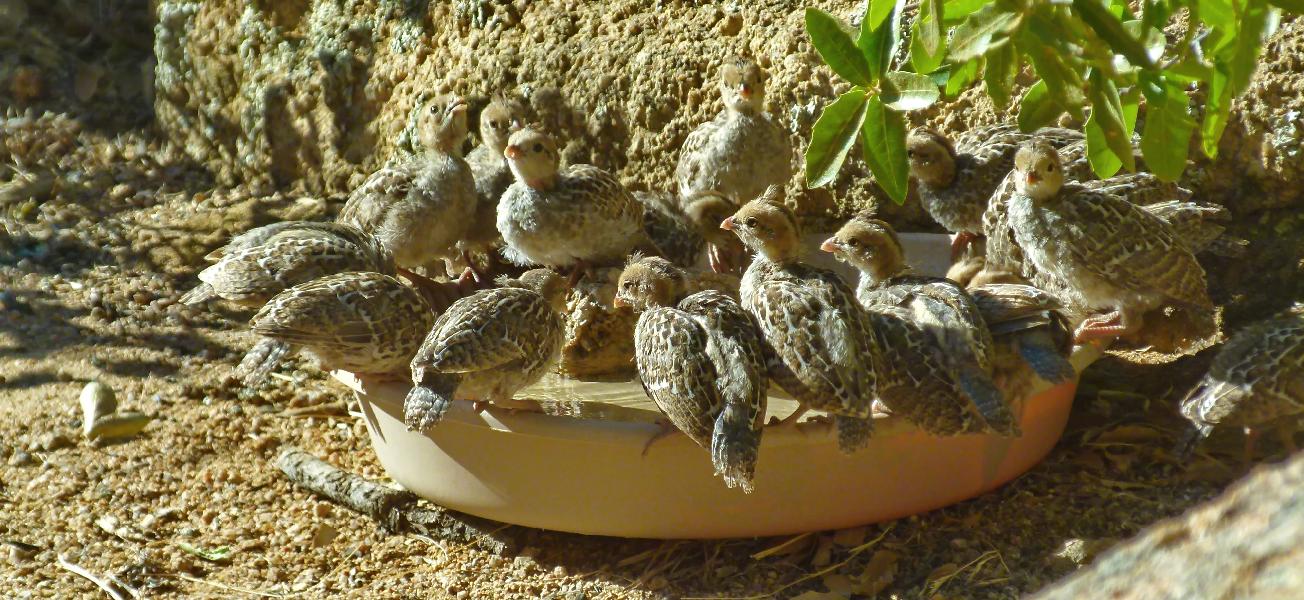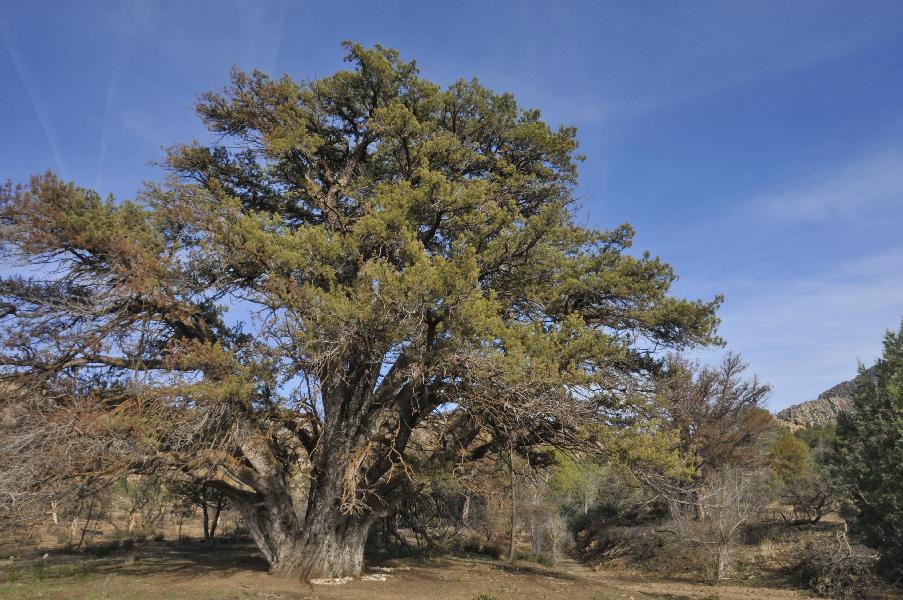For weeks, we have waited, hoping that the early July pattern of monsoon rain arrival would be repeated. It did not look promising. June was brutally hot and dry, clouds rare, winds fierce. The scrub oaks and manzanitas have shed most of their leaves; time will tell if they will all survive this challenge. Grasses were dry as tinder, nutritionless. Sprouting daturas withered and died except where we gave them water. We are the recipients of past pluvial generosity, siphoning water from underground stores without little thought of where that water has come from. But for now, sharing a little of that water with the other creatures that share our space seems like the right thing to do, since we have taken so much from the wild already.
Water set out for the local birds and mammals was eagerly sought by both. Our house became the oasis to which dozens of species flocked. Quail seemed to have had a good reproduction year, as at least a half dozen broods came in daily, but what would have happened without our water subsidy?
Rufous –crowned Sparrows, Crissal Thrashers, finches, towhees, and even woodpeckers—they all drank from our little pools in apparent harmony. Continue reading


